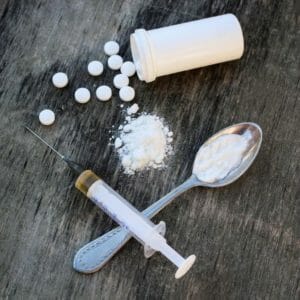Key takeaways:
- Addiction can be understood better through scientific studies, emphasizing the role of socio-cultural characteristics in treatment.
- Addiction is divided into chemical and behavioral types, both of which can severely impact one’s life.
- Alcohol addiction is prevalent, with increasing rates and potential withdrawal symptoms.
- Nicotine addiction poses long-term health risks, leading to dependence and life-threatening consequences.
- Cocaine addiction, an illegal drug, can create euphoric sensations and intense cravings.
- Amphetamine addiction, both legal and illegal, can be highly addictive and detrimental to daily life.
- Seeking professional help from Lantana is crucial for successful addiction recovery.
For decades researchers have dedicated time and resources to conducting several scientific studies that have enabled us to understand addiction on a deeper level, for instance, studies have shown that “socio-cultural characteristics play an important role in the addiction treatment of people who use drugs, so it is necessary for treatment interventions to be sensitive to these characteristics” (Identification of the socio-cultural barriers of drug addiction treatment in Iran, Razaghi et al., 2023.)
Addiction is generally split into two categories: chemical or substance addiction and behavioral addiction. Both can severely impact the body and mind, altering the quality of life forever, but they can be controlled through timely professional intervention.
While many people think that addiction is limited to substance abuse and personal failings, experts have shed light on the many behavioral forms of addiction that leave a serious impact on one’s life.
1. Alcohol Addiction
One of the most common types of addiction is alcoholism. According to research published in JAMA Psychiatry, alcoholism increased by 49% in the United States between 2000 and 2010. It further states that 12.7% of adult Americans suffer from alcohol use disorder.
These jarring statistics show the rampant speed with which drug and alcohol abuse has rapidly increased. Despite rehabilitation, some people may still suffer from withdrawal symptoms, in which case further help would be needed.

Alcoholism affects people from all walks of life and living standards. It may be triggered by genetics, race, employment status, socioeconomic status, etc. There is no specific cause for this addiction and if left untreated, it can escalate to depression, aggression, and violence.
Alcohol addiction impacts the brain’s neurochemistry, resulting in bursts of emotion where people do not have control over their actions, and this can lead to serious trouble.
Depending on the severity of the addiction, patients may have to enroll in an inpatient or outpatient rehabilitation program. You will have to seek treatment to ensure that the addiction does not persist.
2. Nicotine Addiction
Nicotine is an addictive substance that can result in long-term health risks. Cigarettes, cigars, nicotine patches, e-cigarettes, etc., all contain this highly addictive chemical that can severely impact your physical health and personal relationships.
If you are a chain smoker, you will not be able to go long periods of time without a whiff of nicotine. Nicotine addiction is physical as well as behavioral especially since reliance on the substance can lead to withdrawal if you try to quit.
People may indulge in casual smoking after meals while spending time with others who share the habit, or even during a stressful situation. Eventually, it becomes a habit that is associated with stress relief, calmness, etc., and you may find yourself craving it more and more when in such environments.
Nicotine addiction can become life-threatening if not dealt with. Studies have shown time and again that deaths caused by smoking and nicotine addiction add up to 435,000 per year in the USA. These statistics show the devastating results of nicotine addiction around the country and that it can alter one’s lifestyle drastically.
3. Cocaine Addiction
Extracted and produced from the leaves of the coca plant, cocaine is a highly addictive drug that affects nearly 15% of Americans.
Cocaine creates a burst of sensation and energy, increasing alertness by impacting the neuropathways of the brain. People addicted to this substance may notice a euphoric feeling that makes them more talkative and physically active.
Cocaine is illegal in the United States for recreational use. One of the many reasons for this is its highly addictive nature. Even trying it a few times can create a desire and longing for more.
This drug can be consumed in a variety of ways, including through inhalation, injection into the veins, or even consumption via genital routes. Upon consumption, cocaine increases the dopamine concentration in the brain, igniting feelings of heightened pleasure, alertness, activeness, and excitement.

It further keeps other neurotransmitters such as norepinephrine and serotonin to stimulate nerve cells, building excitement by the waves.
Most people who consume cocaine may also notice a lack of hunger and sleep as it keeps you up for long periods of time and allows you to perform tasks quickly. This can become a craving if not stopped immediately, which is why early intervention is paramount.
4. Amphetamine Addiction
Medical professionals and even certain medications may use amphetamine to cure hyperactivity, insomnia, sleep disorder, narcolepsy, etc. It is a type of stimulant that can become incredibly addictive if intake is not monitored.
When taken over and over again, your body and mind may quickly become dependent on it and you may even find ordinary daily tasks taxing and fatiguing.
The two most common types of amphetamines include dextroamphetamine and methamphetamine. While they may be legal in medication, their recreational use is strictly illegal in America.
Addiction to it in medication may also lead to eventual withdrawal if your daily life depends on it. This is especially true if you use it without a prescription.
Patients may develop an amphetamine use disorder if there is easy access to the substance, or if they suffer from depression, anxiety, schizophrenia, high levels of stress, etc.
Start a Treatment
Starting your journey to recovery with Lantana from addiction can be one of the hardest steps to accomplish, but the right resources, support from friends and family, and timely expert intervention can provide the motivation needed to overcome addictive behaviors.
There are several treatment options available for substance addiction. Addictions to substances such as alcohol, heroin, cannabis, cocaine, nicotine, etc., require professional help and supervised detoxification. This is necessary to deal with future withdrawal symptoms.
Enrolling in Rehabilitation Center
Rehab facilities like us provide accommodation for clients who require medical attention and support to combat addiction. Depending on the type and level of substance addiction, clients may stay for a few weeks or even several months up to a year to complete their recovery successfully.
Residential treatment facilities provide help from trained medical staff and therapists so they can work with you and change the way you perceive life’s many hurdles and addictive behaviors.
Clients have access to psychotherapy and in-depth addiction counseling that helps with long-term recovery. You can greatly benefit from CBT (Cognitive Behavioral Therapy) which allows you to practice mindfulness and reinterpret your emotional response to drugs and other harmful substances.
Therapists also help explore emotional triggers and reasons behind substance abuse over the years. This can also help explore different coping and recovery strategies.
Getting Prescribed Medication
In most cases, medical professionals will prescribe appropriate medication to control addictions.
Medication can also increase the chances of success in addiction recovery. It can be helpful in preventing withdrawal or relapses in people who have been in treatment for a while. Medication is especially effective against alcohol addiction, heroin, opioids, nicotine, etc as the increasing rates of opioid use disorder and resulting overdose deaths are a public health emergency. It can support your overall healing process.
However, if not monitored carefully by medical professionals, medication for drugs can quickly become addictive as well, which is why observation and professional advice is paramount to a successful recovery.
You will notice fewer cravings or emotional outbursts with the help of prescribed medication. It is important to note that medication alone is not the solution for substance abuse. Medication must be given in combination with therapy to remove your dependency permanently.
Support Groups
Depending on the intensity of your addiction, you may benefit significantly from joining support groups with Lantana in the long run. Not only does it provide the opportunity to exchange experiences with others in similar situations, but it also makes people feel less lonely and left out.
Support groups such as Alcoholics Anonymous and Narcotics Anonymous are examples of support groups that help people struggling with similar addictions to connect and find support and camaraderie with each other.

These are excellent options for those seeking a self-help treatment method that involves support from others working towards a healthier future.
A supportive network of people can make a tremendous difference in the life of an individual struggling with substance abuse. However, it is essential to note that these support groups are not always the best option for recovery as they lack professional intervention.
Alternatively, SMART Recovery offers a more scientific and research-based support group system for those who want professional help.
Seek Help with Family Therapy
Your mental health is extremely important to sustain important relationships. Common behavioral addictions such as anger issues, impulse control disorders, compulsive behavior, binge drinking, internet addiction, etc., can deteriorate relationships with your family members or even close friends.
Mental disorders can worsen over time if left untreated, but with the help of medical experts, different behavioral addictions and substance use disorders can be dealt with effectively so they do not impact your close relations in the long run.
Family therapy sessions are excellent platforms for your loved ones to discuss their concerns and specific behaviors. You get the chance to mend relationships and recognize common signs of abuse and toxic qualities within yourself and others around you.
While not all families may be cut out for family therapy sessions, it is still an effective way to resolve conflicts and change negative behaviors that may have persisted for a long time.
Professional therapists regulate and moderate these sessions where each side gets a chance to discuss their emotions and perspectives. Be it an addiction, impulse control disorder, behavioral addictions, or other mental health issues, such sessions are a successful way to rebuild relationships and work through hurdles when living with people.
Bottom Line
Chemical addictions, such as alcoholism, nicotine addiction, cocaine addiction, and amphetamine addiction, can have severe consequences on physical and mental health. It is crucial to seek timely professional intervention and support to overcome addictive behaviors.
The key to successful recovery lies in a combination of strategies, including enrolling in rehabilitation centers like Lantana, getting prescribed medication under medical supervision, joining support groups, and participating in family therapy. These resources and interventions can provide the necessary tools and support to overcome addiction and lead a healthier, more fulfilling life.








